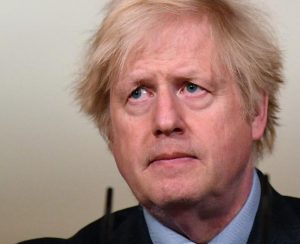This page contains some of the opinions I have shared on Facebook


You can now buy a vegan magnum bar. It contains “exhausted vanilla bean pieces”.
I’m not surprised.
Meanwnile, Macdonalds is offering its customers the “McPlant” burger. Greggs vegan sausage roll is said to be a “triumph” – at least when it comes to marketing.
Clearly, veganism is no longer the preserve of people wearing beads and sandals and achieving World Peace by sticking flowers in their hair.
There has been a shift in what is now “cool” and it is cool to be vegan. Consumer research suggests that the “plant-based meat market” will grow by 17% over the next year.
But the big surprise is that this has nothing to do with people wanting to be kind to animals. Baby calves look no more appealing today than they did a decade ago. What has changed is that Netflix has 260 million paying customers – and you can multiply that by the number of people watching on each account. Netflix is not like the rest of the media. Netflix is not funded by advertising. Nor does it have to pander to politicians. Netflix is subscription-driven. In other words, it streams what people want to see.
That is why it did not care one jot about upsetting the meat and dairy industry by showing Cowspiracy.
This is the documentary about animal agriculture and its effect on climate – something nobody seemed to have considered before. While the green agenda had been all about CO2, the doleful narrator of Cowspiracy explained that this approach will never erase mankind’s carbon footprint in time to save the world because carbon dioxide in the atmosphere takes 100 years to degrade.
On the other hand, Methane is 86 times more harmful to the ozone layer – and yet degrades in only 15 years. While we’re about it, Nitrous Oxide is nearly 300 times more damaging and nobody worries about that at all.
In other words, says the appalled narrator, we could reverse climate change must faster and far more effectively by focussing not on CO2 but on NO (Nitrous Oxide) and CH4 – which is the chemical formula for methane. Or to put it less academically, cow farts.
In other words, you could get rid of all the cars, trucks, ships and planes in the world and it still wouldn’t be as effective at reversing global warming as everyone giving up meat and dairy.
The fact that it would also put an end to world hunger and go a long way towards solving the global water shortage is a side issue.
Yes, if you’d like another statistic, it takes 660 gallons of water to produce one quarter-pound hamburger – and obviously, it makes more sense to feed a vegetable to a person rather than growing it specifically to feed it to an animal so that you can then feed that animal to the person.
So why is it, given this rather obvious better option, that governments and pressure groups around the world urge us to turn off lights, switch on electric cars and reduce our dependence on fossil fuels when it would be much more helpful if we changed our eating habits instead?
There’s an easy answer: People like to feel virtuous about doing something as easy as installing LED lightbulbs. Indeed, give them an incentive to buy an electric car so they won’t have to pay for petrol anymore and they might even vote for you.
But tell them they have to give up steak and spare ribs – and you will have a revolution on your hands.
As Cowspiracy would have it, the reason governments and pressure groups are not suggesting the world should go vegan is because the agriculture lobby is too powerful – in Brazil, you can get murdered for challenging the beef industry’s right to rape the Amazon rain forest.
And while we’re on the subject, hot on the tail of Cowspiracy, comes Seaspiracy which focusses on the fishing industry and the fact that if it continues to plunder the seas as it has been, there will be no life at all in the oceans by 2048. Which means, according to that gloomy narrator: “When the oceans die, we die.”
So, it’s all hopeless.
Or is it?
Consider this for a moment: In the 1930s no well-dressed woman would be seen walking out in the winter without a dead fox around her shoulders – back feet hanging down one side, glass eyes staring from her shoulder. In the 1960s, entrepreneurs riding high on “never had it so good” Britain, announced their success with a mink coat for the wife. Bond Street was full of furriers.
Then in 1985, a couple of disillusioned Greenpeace activists started an anti-fur pressure group called LYNX. They enlisted models, photographers and musicians – all the cool people. David Bailey waived his fee to take that enduring image of the model walking down a catwalk dragging a fur coat which left a trail of blood – the caption reading: “It takes up to 40 dumb animals to make a fur coat – but only one to wear it.”
Linda McCartney chipped in with a model in a fur coat alongside a dead fox: “Rich bitch. Poor bitch.”
By 1990, a fur coat was about as fashionable as a shell suit is today. Now the government is on the point of using Brexit to ban the UK fur trade completely.
In other words, it took just 30 years for public opinion to kill off an entire industry.
Ah, but the fur business was small and fragmented – not like, for instance, the brewing industry.
In the 1960s Watneys, Courage and Whitbreads dominated the British licensed trade. They owned the pubs and they brewed fizzy keg beer with fish heads to make it ferment. It tasted awful but they made some very amusing adverts – remember Watneys Red and its Russian spies?
Today, you wouldn’t be able to give it away – and all because a bunch of hairy activists started the Campaign for Real Ale. In less than 20 years they forced an industrial behemoth to dance to the tune of the people.
Quite simply, they made real ale fashionable – just as LYNX made fur unfashionable.
Is it possible that for the first time in a long and hitherto unfashionable life, I am ahead of the trend? I find that, however gradually, I am going vegan.
It didn’t start as a political statement. It was just that one day I was carving boiled ham and decided that it smelled disgusting. Later on, out of curiosity, I looked up the reason and discovered that pigs are true omnivores. That is to say that, given the chance, they will eat literally anything – rotting meat, sewage… and they will convert it into meat at the most alarming speed. No wonder so many religions ban it.
I stopped eating it too – and I used to like bacon.
Next came red meat. I began to appreciate not wanting to lie down after a meal.
And the more I paid attention to vegetables, the better I came to appreciate them in all their astonishing variety.
Poultry went the same way as red meat – but I still ate fish. At least I did until I began to spend more and more time afloat.
Finally, one day in Lossiemouth, I was moored next to a little coastal fishing boat. Every night, the fisherman would leave two lines hanging over the back. Every morning he would have two fish. I watched him take them off the hooks and leave them flapping and gasping while he made his cup of tea. Then he gutted them while they were still alive.
To him, this was perfectly normal. To me – someone whose first acquaintance with a fish is normally when I have a knife and fork to hand – it seemed barbaric.
And, of course, Seaspiracy didn’t help with its spotlight on conditions in fish farms and the explanation of “by-catch” – all the dolphins and other unwanted species which are thrown back dead because they happened to get caught in the net by mistake.
Then I watched My Octopus Teacher and that finished me for calamari.
You may say: “Ah, but I only buy fish from sustainable sources.” But that’s not the point. That is like saying “My ivory collection is acceptable because it came only from old elephants culled by licensed hunters”.
Remember when Prince William suggested making a bonfire of the Royal Ivory collection? His point was that if the Royal Family demonstrated that they considered Ivory to be worthless, then maybe everyone else would too.
If the cool people – the influencers – all become vegan, whether it be for the climate or the sake of the animals themselves … or just because they feel so much better after eating vegetables, see how quickly the rest will follow.
Imagine, in thirty years from now, meat eaters being asked to sit outside because the smell of a steak offends the other diners. It happened with smokers – nobody could have imagined that in the 1960’s.
Of course, my going for a McPlant burger is hardly going to save the world – but in years to come, when the future of the earth is assured once more, and world hunger is something in the history books and the deserts bloom (with vegetables), who will be able to say what it was that tipped the balance?
April 2024

October 2022

Bring back Boris!
Bring back Boris?
Why would anyone want to bring back Boris?
Boris is the reason we’re in this mess.
Think about it: Why did we get Liz Truss? Because Boris had emptied the government benches of anyone with any talent – anyone, for instance, who might be a threat to him. Remember what happened before the last election;? All Tory candidates had to sign up to the great Get Brexit Done campaign – Get Brexit Done at all costs, even if it crippled the country for generations to come. Just Get It Done.
It was a stupid idea – almost as stupid as Brexit itself. But then, all the Tories with any sense – any talent – any kind of moral compass or thought for the welfare of the country rather than their own personal ambition had turned him down.
Whatever happened to Ken Clarke, Michael Fallon, Philip Hammond, George Holingbery, Nick Hurd, Nicholas Soames, Rory Stewart…
There were 32 of them. Men and women who had campaigned for Remain and assumed that logic and reason and basic intelligence would be enough for the electorate to see Brexit for what it was – sunlit uplands and all.
Of course, we now know what they were up against: Cambridge Analytica and the Kremlin’s malicious bots, persuading millions of people who had never voted for anyone in their lives to turn out and follow Michael Gove’s moronic assertion that “The British People Have Had Enough Of Experts”.
No wonder they believed the promises.
“There will be no downside to Brexit. Only a considerable upside” – David Davis.
“The free trade agreement that we will do with the European Union should be one of the easiest in human history” – Liam Fox.
“There will be no change to the border between Northern Ireland and the Republic” – Michael Gove.
“No means we stay in. We are members of the European Union (sic)” – Ruth Davidson.
… and, of course, don’t forget the big red bus and £350,000,000 a week for the NHS.
And who fronted it all? Whose undeniable talent for campaigning pushed Vote Leave over the line (by the smallest of margins)?
Why, Boris Johnson, of course – the man who had been so close to campaigning for the other side that he had to write two versions of his Telegraph column to help him make up his mind.
While we can’t be absolutely sure of the reason he jumped into the Leave camp, is it possible that he saw less competition on that side? No longer would he have to play second fiddle to his old chum David Cameron?
Brexit was his Golden Ticket to achieving his lifelong ambition to be “King of the World”.
Well, now we know what a disaster Brexit has been. I won’t try to convince you on this point because if you need convincing, you will not be swayed by such sweet old-fashioned notions as logic and reason. People who still believe in Brexit are as inflexible as Americans who still believe the election was stolen – they just believe. End of.
But Brexit is a lie. It was always a lie. The people who promoted it knew it was a lie – but a convenient one for their purposes, whether they were disaster capitalists, newspaper proprietors with offshore bank accounts or Vladimir Putin with his dream of fracking Europe.
And Boris Johnson became the liar-in-chief. In the words of Max Hastings, his former boss at the Daily Telegraph, Johnson “would not recognize the truth if confronted by it in an identity parade.”
And so it proved: Today, he is still under investigation by the Commons Privileges Committee for misleading parliament. He lied to the late Queen. He was forced out of Downing Street over Partygate and heaven knows what else.
But here is the nub of the thing. Here is why six years of lies have brought this country so low.
The truth matters. It matters in every area of a civilized society.
That is why a witness who tells a lie in court goes to prison for perjury. A company chairman who lies to the shareholders is guilty of fraud. Truth is at the heart of everything, be it a family, the workplace or the reception class in the local primary school. Unless a society values truth, it will founder. Look at the history of Germany – look at Russia. Look at the USA over the past decade.
Would you marry someone who consistently lies to you? Would you employ such a person? Or go to work for them? Would you trust them with the care of your children? Let them fix your car or tinker with your boiler?
You might argue that “all politicians lie”. No, they don’t. They make promises they can’t keep. There’s a difference. If they’re caught lying, they have the grace to be embarrassed about it. Johnson seems to be missing this involuntary reflex – or maybe he just has no shame.
A country that chooses to be led by a liar may find it difficult to correct the mistake.
A country that gives that liar a second chance has only itself to blame.
March 2nd 2022

There is a scene in A Bridge too Far where XXX Corps has parked its tanks by the side of the road, and Major Cook (Robert Redford) comes up and remonstrates with the British officer for drinking tea while his countrymen are being slaughtered in Arnhem.

The Tipping Point
In Britain, we tend to be shy when it comes to talking about politics. A Frenchman needs no encouragement at all. Every American knows how their friends vote (it’s probably how they choose their friends).
But in the UK, politics – like religion – has always been a private matter.
Until now.
Have you noticed that more and more of your friends are “coming out” with their opinion of the Tory government? Even staunch Conservatives seem at a loss, claiming its traditions of fair play and honesty have been ambushed by a right-wing clique?
Of course, this sort of seismic shift in thinking doesn’t happen overnight. For each of us, there has to be a tipping point – something that takes the situation a step too far and makes us say: “Enough is enough.”
This might have happened early on when it became clear that the fishing industry had been double-crossed – or was it the slowly-dawning realisation that the £350 million a week for the NHS was just an empty promise?
It might have been the Northern Ireland Protocol and the shock that any British government would risk a return to the bloodshed and the anguish that was 30 years of The Troubles.
And, for many people, it was not until this week when MPs voted to allow water companies to pump raw sewage into our rivers and coastal waters. What possible justification can there be for that?
Or maybe this is still not enough for you. Don’t worry; there’ll be something else along next week.
If, indeed, you have been thinking along these lines, you will have noticed that your problems are only just beginning: No sooner have you decided you want to see the back of this Tory Government than you realise it is impossible: They have an 80-seat majority. The next general election is not until 2024. The anti-Tory parties will split the vote, and the new Elections Act means they won’t be allowed to join forces. On top of everything else, the policing bill means that joining a street demonstration could land you in jail.
Make no mistake: This Tory government is determined to remain in power forever.
So maybe it is better to stop worrying and think about something else. Leave politics to the politicians: There is nothing more futile than spending your days and nights trawling through angry Facebook groups, knowing all the while there is nothing any of us can do.
And it was at this point – just when it all seemed hopeless – that somebody had a brilliant idea.
It is called RTTG. The awkward initials stand for Remove the Tory Government, and it is an online organisation with one purpose: To draw up a list of British electors opposed to the present government.
When they have more than 50% signed up and verifiable (you have to give your name and address, your date of birth and so on), they will go to court on your behalf. Possibly, the case will be brought by the Good Law Project, who have been harassing the government through the courts with a good deal of success. They would argue that for a people to be governed by a party with only 43.6% of the votes contravenes the European Convention on Human Rights – and we are still bound by the Convention even though we have left the EU.
Victory in the courts would result in an appeal to The Queen to dissolve Parliament as she did in 1975 when she dismissed Gough Whitlam’s Australian government. In place of Boris Johnson and his cabinet, a Government of National Unity would be established to initiate a three-step process of change:
- To establish a form of Proportional Representation so that never again can a party with a minority of the votes win a majority of the seats.
- To set up an independent watchdog with the power to prevent dishonesty and corruption in Parliament. An MP breaking the rules would be banned for life.
- The interim government would then call an election under the new system, returning British politics to honesty and fairness.
Yes, it does sound far-fetched. But then, all revolutions begin with a mountain to climb. There is no reason why this is not achievable. All it requires is for enough people to stand up for what they believe to be right – and to do so without waiting for everyone else to do it first.
There is real urgency here. The present government is in the process of adjusting the system so that it can never be changed again. That is why there we cannot wait for the next election. The majority must take control now – within the next 12 months… before it is too late…
So, I have joined the RTTG and sent them a small donation along with my date of birth – and I have a monthly standing order in favour of the Good Law Project to help them too.
You can do the same if you like.
Remove The Tory Government is at: https://remove-the-tory-government.org/
The Good Law Project at: https://goodlawproject.org/
And if you don’t believe this government needs to be removed, have a look at https://boris-johnson-lies.com/
August 1st 2021

I have just read Peter Oborne’s book, The Assault on Truth, about the culture of presenting lies as fact, which has overtaken Downing Street and the Conservative Party.
It does make fascinating reading – after all, didn’t you wonder how we came to this? How we could have elected a Prime Minister who lies so regularly and with impunity.
For, make no mistake, Boris Johnson will as readily tell you black is white as remark on the weather.
To illustrate this, the author highlights what he calls one of Johnson’s strangest lies: On a visit to Whipps Cross Hospital in London, a man whose child was a patient confronted the Prime Minister in a corridor in front of the television cameras. “The NHS is being destroyed,” said the man. “And now you come here for a press opportunity.”
As the cameras rolled, Johnson replied: “Well, actually, there’s no press here.”
The man, Omar Salem, was incredulous. “What do you mean there’s no press here?” he said, pointing at the cameras. “Who are these people?”
Oborne is a former contributor to the Daily Mail and the Daily Telegraph, but eventually, he saw the light. He used his Saturday Daily Mail column to describe how Johnson was using the power of his office to spread propaganda and fake news. Shortly before the page was due to go to press, the editor phoned and asked him to write another on a different topic.
So Oborne offered the original to The Spectator – who explained that the magazine’s political team had cultivated excellent sources within Number Ten and this might invite charges of hypocrisy.
He found a television production company who tried to interest Channel Four’s Dispatches. Initially, there was some enthusiasm – until the Director of Programmes returned from holiday and stamped on it. Oborne suggested they try the BBC but was told the Beeb wouldn’t touch it.
The article finished up on the website OpenDemocracy – and that signalled the end of Oborne’s 30-year career as a writer and broadcaster on British politics. Radio 4’s The Week in Westminster dropped him. He parted company with the Daily Mail by mutual agreement.
Instead, he started the website www.Borish-Johnson-Lies.com and maintained it until the General Election when the outpouring of untruth from Downing Street overwhelmed his resources.
And so he wrote this book, and Simon and Schuster published it. Oborne has sent copies to the speakers of the House of Commons and the House of Lords urging them to take action against misleading government statements – as their offices require them to do. He suggests that readers might like to back him up.
Apart from advice about writing to your MP and the local press, he has some less obvious suggestions for the general public. For instance, people working in the public services, asked to propagate a statement which is plainly untrue, could request the instruction in writing. Then they could forward it to the organisation which oversees the ethics in their field.
You could even sue Boris Johnson personally. Wouldn’t that be something? Anyone can issue a writ for defamation.
There are many other suggestions for halting the slide into this Orwellian world in which the truth is whatever the government says it is.
May 1st 2021 (posted on Writers Network UK)
April 10th 2021


April 6th 2021

April 12th 2020

Facebook seems to be awash with conspiracy theories that the Covid-19 epidemic is all a devious plot by those dirty rotten commies: After all, it started in China, in Wuhan. Now it’s all over New York. So how come Beijing and Shanghai got off so lightly? And why is it hardly noticeable in Russia? As for North Korea…
The inference is that the commie scientists cooked it up and, once they’d developed an antidote or vaccine or something to protect the major part of their own populations, they waited for it to spread around the world, destroying economies and crashing stock markets as it went – so that the Chinese state and the Russians oligarchs – and President Kim, if he wants a piece of the pie, could buy up the choicest Western companies.
World domination without all that unpleasant noise and destruction – and, of course, nobody shooting back.
It all fits.
Except, as a plan, it’s not really very cunning at all. Ian Fleming would have done a lot better.
How about this out of the supervillain handbook: You cook up your deadly virus but you do not release it in your own population – I mean, how daft is that? Talk about a smoking gun…
No, instead, you quietly vaccinate 95% of your own population – and of course the entire politburo and all their friends and relations. Then you send your top secret agent to New York (or, perhaps a couple of sports supplement salesmen to Salisbury) and you spray a bit of it on the door handle of a gay bar in Hell’s Kitchen – also, perhaps, a drug den or two in Washington Heights. The agent then goes to look at the One World Trade Center as an alibi (514metres!) and flies home.
As the epidemic progresses, you can point the finger at “degenerate capitalists” – and of course, the communist world will only suffer mildly because of its “superior system”.
So, no, I don’t really think it’s a communist plot.
On the other hand, about this theory that the world is round…
December 14th 20019

When the map of the UK turned blue in the early hours of Friday morning, Facebook lit up with talk of emigration to the Republic of Ireland … or Finland. Maybe if you move to Scotland now, then after independence…
Two of my wife’s friends said they wanted to kill themselves.
Then Boris Johnson stood in Downing Street and gave a speech which, after five weeks of bombast and half-truths and downright lies and scuttling away from Andrew Neil and hiding in a fridge, was remarkable in its humility.
As I woke up this morning with a sudden compulsion to write this, he was already on his way to the North of England to meet those first-time Conservative voters whose pencils had wavered so evocatively over their ballot papers while the ghosts of their parents and grandparents whispered into their ears with horror.
These were, according to Labour’s stalwarts “Turkeys voting for Christmas”: Just wait until Boris and his billionaire pals sell off the hospitals to Trump and serve up ten more years of austerity…
But could we all be mis-reading the Prime Minister?
Back in 2014 when my birthday wish was a Kindle, the first book I downloaded was The Churchill Effect, the then-Mayor of London’s not-so-very-well-disguised exercise in drawing parallels between himself and his great hero.
After all, they were both politicians with nice little sidelines in journalism.
Actually, hardly sidelines: Even Johnson’s £250,000-a-year contract with the Daily Telegraph really is chicken feed (his words) when compared to the £100,000 Churchill got from the Daily Mail, the News of the World, the Sunday Dispatch and the others back in the 1930s. By today’s calculations, that would be £1.4million.
While Churchill was warning of the dangers of Nazism, Johnson made his name by ridiculing the EU. The only difference was that Churchill’s stories turned out to be true.
Still, both of them were considered untrustworthy – Churchill hopped back and forth between the Conservatives and the Liberals, Johnson betrayed his leader, David Cameron.
Both were showmen – never happier than with a photo opportunity. Johnson even experimented with Churchill’s V sign – until, presumably, one of his advisors told him he was being ridiculous and he adopted his trademark double thumbs-up instead.
Kensington cringed (didn’t the thumb thing go out with Tommies in the trenches?). But It went down a storm in Workington.
Unexpectedly, absurdly, this Eton-educated Bullingdon toff has an ability to connect with the working man and woman as readily as his idol was cheered touring the East End of London at the height of the Blitz. Stepney loved “Winnie”. Workington will love Bojo.
And for both men, public approval is as essential as oxygen.
You can’t blame them. This is basic human nature: We all want to be loved – it’s just that with public figures, the adoration has to be on a much larger scale: If you want to get inside Boris Johnson’s head, just think of VE Day, May 8th 1945: The crowds gathered in front of Buckingham Palace, the King and Queen on the balcony with the Princesses Elizabeth and Margaret – and the crowd begins to chant: “We want Winston”.
Do you not think that, deep in Boris’s subconscious, buried underneath all the Greek mythology and oven-ready quotes from Shakespeare, there might just lurk an image of himself as The Great Statesman?
Might he, one day, make the cut in those lists of “most influential figures in history”?
You can bet your life he’s thought about it.
So, would he risk all that by selling the NHS?
Britain’s Health Service has become the Totem of this administration. Labour tried to make it a deal-breaker with the boy on the coat on the floor. If Boris sells the soul of Britain to Donald Trump for a mess of chlorinated chicken, he risks compromising his own deepest desires.
He really would rather die in a ditch.
But imagine if he does “Deliver Brexit” and 50,000 nurses and 20,000 police and 40 new hospitals and all the rest?
And “heal the nation”… and protect the Remainers’ “good and positive feeling” towards Europe … and achieve all those other dreams which presently seem as wonderful but impossible as fighting Hitler’s invincible Wehrmacht on the beaches?
Of course it’s not going to be easy.
But whoever loved easy?
December 10th 2019

With less than 40 hours to go before the polls open, as we stand on the edge of what Hugh Grant calls “The abyss – with hundreds of thousands of job losses, food shortages, medicine shortages, the end of peace in Northern Ireland, a massive blow to our standing, our influence in the world etc…etc…” I have been enjoying an exchange with one of my Facebook friends, a Leaver.
I think it sums up the nation’s dilemma very neatly so maybe it would be useful to extract it from the long and bitter thread and give it centre stage.
It all started when I re-posted an article published by the New Statesman back in January, headed: “Why the UK cannot see that Brexit is utterly, utterly stupid.”
Somebody commented: “Perhaps it’s a sensible idea.”
Whenever this happens I ask them to list their top three benefits of Leaving (not “Because we won” which is a reason, not a benefit). Also, I ask for logical explanations of those benefits rather than the usual emotive stuff rooted in national pride and nostalgia.
Quick as a flash, the Leaver came back with the one word “History”.
After a bit more banter, another offered the following: “There doesn’t have to be benefits for me to prefer it.”
I thought that was rather telling. There don’t have to be any benefits? He went on:
“I believe there are opportunities economically in the long term but that is based on opinion and may not come to fruition, depends upon the government negotiating good deals and making the country attractive to investment.”
After a little more prodding, this: “For me, it’s more about the negatives of not leaving. I don’t believe in a system of a federal Europe with greater unity. I want to be able to have my small ability to put pressure on my politicians to lobby them for what I want. I want all decisions made as locally as possible. I want my country to decide where grants go, not Europe. I want trade deals negotiated for us not all of the EU. I think the possibility of a European army is scary and anything we can do to stop it a good thing. I think the EU is an immoral state which has little room for people of faith. I could go on…”
But he didn’t. So I replied: “I haven’t seen your list of benefits yet. So, to save time:
“You want decisions made as locally as possible. Please point to any laws imposed on the UK by the EU which you believe would not have been passed by Westminster.
“You want your country to decide where grants go, rather than those decisions being taken in Brussels: Please itemise one or two instances where you take exception to the use of EU grants for UK organisations.
“You want trade deals negotiated for us, not for the whole of the EU. Do you think we would get a better deal with our population of 59million (after Scotland has left the UK and re-joined the EU as a sovereign state) compared to the EU negotiators representing 512million?
“You are scared by the prospect of an EU army. Did you know the UK has a veto on joining any EU army?
“Finally, you view the EU as an immoral state which has little room for people of faith. Please support this claim and explain why you believe people of faith would prefer to leave. Also, are you referring to any particular faith?”
He went quiet after that. Anyway, I wasn’t sure I wanted to carry on. You have to be really keen on political argument to pursue this sort of thing (or slightly mad to have carried it thus far). But, like Hugh Grant on the doorstep, if we don’t do something, we will wake up on December 13th to a Britain none of us recognises: The Conservative manifesto has made it very clear that if they have a majority on Friday, they will make sure that in future the Prime Minister is protected from interference by the courts or Parliament as well as being immune from criticism by troublesome media outlets like the BBC.
Can you think of any other countries which adopted such a regime – either past or present?
Does it sound like the country you have known and loved up until now?
September 14th 2019

Before we start, I should say that I am not advocating anything that follows. It’s just that at the moment, with all this talk of an election and a second referendum, it’s a topic for discussion.
Besides, I do like to stir things up a bit…
This all started with a Facebook friend complaining that he had tried to reason with his mother, only to have her say: “Well I don’t believe any of that. The sooner we’re out the better.”
She did not, of course, attempt to justify her opinion.
Yet her vote counts for just as much as her son’s with all his reasoned arguments. That’s how democracy works.
But have you heard of a book called In the Wet by Nevil Shute? It was written in 1953, soon after Shute emigrated to Australia, in disgust at the post-war Labour government. It imagines an England that remained Socialist for the next thirty years and is set in a hypothetical 1983.
Rationing is still in force, the Unions run the country, tax rates are sky-high and most of the brightest and best (like the author) have emigrated to the Commonwealth.
Meanwhile, Australia, New Zealand and Canada (he tactfully ignores Southern Africa) are booming. There is one very obvious reason for this: All of them have adopted a system called the “Multiple Vote”.
Just as New Zealand adopted the Secret Ballot and Votes for Women long before the Mother Country, so, in the book, they introduced the idea that the brightest and best of their citizens should have more of a say in their elections. The way it worked was this:
Everybody had one vote – the basic vote. But they were given a second vote if they had a university degree or a commission in the armed forces – the logic being that better-educated people made better decisions.
In fact, there were six votes in all.
A third was for Foreign Travel – you had to have earned your living abroad for two years.
Number Four was the Family Vote: Raise two children to the age of 14 without getting divorced.
Five: Achievement – if your earned income was over a certain amount (the equivalent of £50,000 today).
Six: The Church Vote: For someone who officiated (as priest, churchwarden etc) in any recognised (Christian) church – this was 1953, don’t forget.
And finally, there was the very rare Seventh Vote which was in the gift of the Queen, rather like an honour.
This is how Shute has one of his characters, a young Australian pilot, describe what happened: “We got a totally different sort of politician when we got the multiple vote. Before that, when it was one man one vote, the politicians were all tub-thumping nonentities and union bosses. Sensible people didn’t stand for Parliament, and if they stood they didn’t get in. When we got multiple voting we got a better class of politician altogether, people who got elected by sensible voters.
“Before that, when a man got elected to the Legislative Assembly, he was an engine driver or a dock labourer maybe. He got made a minister and top man of a government department. Well, he couldn’t do a thing. The public servants had him all wrapped up, because he didn’t know anything.”
And afterwards?
“My word, we got some real men in charge. Did the Public Service catch a cold! Half of them were out on their ear within a year… It was Multiple voting made a nation of Australia.”
Actually, Shute’s idea was not original. I found this in Wikipedia:
Plural voting was possible in Britain in the past. Until the late 1940s, the graduates of all British universities sent representatives to Parliament, and property owners could vote both where they lived and where they owned property; a university-educated property owner could therefore have three votes. The graduates of the National University of Ireland and of Trinity College are still represented in the upper house of Ireland’s parliament. Mark Twain used the idea of multiple votes for merit in his short story “The Curious Republic of Gondour”.
So there. All I did was put it out for discussion – so don’t come and lynch me!

Nevil Schute
September 10th 2019

The revelation that British doctors are demanding a helpline for people who are addicted to the very drugs which the doctors had prescribed, has to be one of those charming aspects of real-life which beggars description.
Apparently, every year, a quarter of adults take strong painkillers, anti-depressants or sleeping tablets.
I mention this because four years ago, I was so ill that I ended up in hospital because I had banged my elbow. When I came out and demanded that my doctor tell me what was wrong with me, he said: “Well, you are getting on…”
I was 66.
Since then, I have not taken any kind of pharmaceutical product – not even an aspirin (and interestingly, I have not had a headache in all that time).
Similarly, my arthritic pain has disappeared, the optician says that over the past year, I show “significant improvement in the distance vision of both eyes” (the previous year it was “slight improvement in one”. The liver spots on my hands have vanished… I could go on.
Admittedly, I do now take supplements – but nothing from the doctor or a Health Food shop. Meanwhile, a large part of the new lifestyle was prompted by an article by Daily Telegraph’s Medical Correspondent writing in The Oldie magazine.
This is it:
From The Oldie Magazine; June 2018
All those pills could be making you ill
By James Le Fanu
Doctors nowadays prescribe too many pills – a regular topic of conversation around the dinner table, down the pub and on the golf course.
Some are apprehensive lest they prescribe yet more. Quite a lot of people I know are fearful of visiting their doctor’s surgery because of this. Dutiful children visiting parents or elderly relatives are concerned at the plethora of drugs cluttering the bathroom cabinet. The relevant statistics might be described as awesome: in just fifteen years, the number of prescriptions issued by family doctors has increased almost threefold – an additional 600 million each year. Four times as many now take five drugs or more – almost half in their seventies and beyond; three times as many take ten or more.
These drugs are, of course, very effective; so many may well have benefited from this vogue for polypharmacy (literally ‘many drugs’) as it is known. Still, there is no drug with its chance of good that does not have adverse effects in some. The more taken, the greater the risk – leading to a massive upswing, by more than 30,000 a year, of those requiring emergency admission to hospital with potentially fatal drug-induced complications (falls, confusion, bleeding from the gut) – a contributory factor to the recently noted decline in life expectancy.
My first intimation of the scale of this debacle came just over a decade ago in a letter from a reader of my Telegraph column who, eighteen months earlier, had required a major operation to repair an aortic aneurysm – ballooning of the main blood vessel in his abdomen. He recovered well but had subsequently gone progressively downhill, becoming increasingly decrepit, immiserated by muscular aches and pains that his doctors were unable to explain.
He was determined at least, to make it to his son’s wedding in Hawaii – not an easy journey, requiring a wheelchair at the several transfer stopovers. Reaching his destination, he realised he had forgotten to pack the cholesterol-lowering statins prescribed after his operation. But he was so markedly improved by three weeks of not taking them that he was able, on his return, to walk unaided back through Heathrow.
This account of his near-miraculous recovery was promptly corroborated by hundreds of others describing how their impaired mobility, lethargy, poor concentration or insomnia – often misattributed to anno domini (‘What can you expect at your age’) – had similarly resolved after discontinuing, for one reason or another, their medicines.
As time has passed, so the toll of polypharmacy has become ever more apparent. For those who are otherwise fit and healthy, the onset of side-effects soon after initiating treatment will indicate the cause. The difficulty arises when these symptoms are more insidious or their doctors obtusely refuse to acknowledge the drugs might be responsible as with the following case, from a woman whose 71-year-old husband is taking eight pills in the morning, five in the evening.
‘He has lost all confidence,’ she writes. ‘He gets up in the morning with no energy, unable to work in the house or garden. When our grandchildren visit, it is all too much for him. His life stretches out with no hope of improvement. On enquiring about the necessity for taking so many medicines, the doctor said he would not be here if you stop taking any of them.’
The main engine that drives polypharmacy is, predictably, Big Pharma. Since the 1980s, it has deployed its immense wealth and Influence to blur the boundaries between the normal and abnormal. In devious ways, it extrapolates the undoubted merits of drugs for the relatively few with, for example, markedly raised blood pressure or cholesterol levels, to the vastly greater number in whom these indices are only marginally raised, if at all.
Who would know, given the current enthusiasm for mass medication, that the benefits of commonly prescribed drugs – are systemically exaggerated fiftyfold; or that, in certain instances, 98% of those taking them gain no benefit from doing so?
Then, in 2004, there was a Faustian deal between family doctors and the government, in which they would in future be ‘paid for performance’. It ensured polypharmacy would become deeply entrenched in routine medical practice, their income dependent on their success in hitting more than 50 targets for the numbers of patients diagnosed and treated for a given set of conditions.
Fourteen years on, almost everyone agrees this needs to be reversed (nine out of ten GPs in a recent straw poll) but this is unlikely to happen anytime soon.
This leaves little alternative for the public other than to take the initiative. By acquainting themselves with the merits (or otherwise) of drugs they are taking, they should have a properly informed discussion with their doctors on whether they really need to ‘keep taking the pills’.
Too many pills: How too much medicine is endangering our health and what we can do about it’ by James le Fanu (Little, Brown, £13.99).
August 22nd 2019

One commentator just said: “That a Prime Minister would voluntarily drag his country into this situation is just insane…”
And that’s one of the more measured responses. The newspapers can’t leave it alone: The way they see it, there can only be one consequence of a return to a hard border and that is the collapse of the Good Friday agreement.
Presumably the “elderly and well-to-do” Conservative Party members who put Boris Johnson into Downing Street remember how it used to be in the 70’s and 80’s: The streets of Belfast and Londonderry choked with burning buses and armoured Landrovers; a bomb in every culvert of the Armagh countryside and the American ex-special forces sniper who came over and shot a squaddy a week, punching a bullet the size of a cigar through his body armour.
And that was just over here. On the mainland, we had the Harrods Bomb and the Baltic Exchange Bomb and the Brighton Bomb and all the other bombs…
Oh, sorry, I forgot the sectarian death squads roaming the streets night after night paying off scores going back generations.
Funny how we managed to forget it all once Al-Quaeda came along…
Yet, one spring day 21 years ago, a miracle had occurred: The killing stopped. Just like that. It was as unexpected as if everybody in the Middle East had decided, on a whim, to be friends after all…
And nobody over here – nor in the North, when I was up there – wants to turn back the clock. It seems to me that a couple of decades of not having a border has given these people the illusion that they’re all just Irish – northerners and southerners, Protestants and Catholics together – and proud to be Irish.
Maybe religion is no longer the potent force that it was – the South voted to legalise abortion, remember. In the North, the Orangemen haven’t marched past Drumcree Church since 1997. Times change. People forget…
Something else that has changed is the economic outlook. Thanks to all that EU money, life is much better in the South – in “Boomtown Ireland”. Dublin has the highest living costs in Europe – and, of course, wages to match. How much more noticeable will that difference become after a hard Brexit?
So here’s a prediction: Given that Northern Ireland voted to Remain and nobody in their right minds wants a return to The Troubles and anyway it’s perfectly natural to hanker after a higher standard of living, isn’t it possible that the people of the North would want to secede from the UK and join the south in some sort of “Confederation of Ireland”?
In which case, what would Scotland do? And Wales? And don’t forget the Cornish National Party…
Brexiteers will say this is all irrelevant because Europe is broke and England will flourish as a tiny and independent state – like Singapore. You might call it “Project Optimism” because nobody really knows. But you must agree that when it comes to punditry, most of those who might be expected to have more knowledge than the man in the street have plumped for Remain.
Then there are the great champions of Brexit: Vladimir Putin with his view that “liberalism is obsolete” – and Donald Trump, of “America First” who sees international relations as a big, thrilling game of Monopoly.
I know the EU is not perfect. Of course, we will have other people telling us what to do. We will have to pay in more than we get out – how else do you think Eire became the country it is today? But doesn’t that benefit Europe as a whole? Wouldn’t we rather Poland turned out that way… and Slovakia, too, and Lithuania…
And isn’t this the way civilization is supposed to work? Ever since the hunter-gatherers grouped together for mutual protection, people have had to get used to being told what to do – either by dictators or elected governments – and how many people actually like the governments they elect? It’s a compromise. It’s always a compromise.
Remaining in the EU would be a compromise. Heaven knows it’s not perfect but at least it’s a large and powerful group trying to promote the good of all even if that means we have to pay in more than we get back.
Yes, there will be in-fighting. Yes, there will be wastage and corruption and cronyism and perfectly good arguments for leaving. There will be conspiracy theorists saying it’s the New World Order trying to enslave us all and sentimentalists remembering two world wars and one world cup.
But on balance, in the long run: Which scenario holds out more hope: Working together as part of something bigger than ourselves – or walking away alone, into the wilderness, as it were, to build a stockade and be self-reliant and start from scratch to create a new and wealthy nation based on self-interest and patriotism?
The last time anybody tried that, it turned out very badly.
Since I don’t want to make enemies, let me agree with the Leavers on the following points:
Yes, the EU is corrupt and wasteful – all that spending £150million a year moving from Brussels to Strasbourg once a month just for four days. You couldn’t make it up…
Certainly, we pay more into the community than we get back so all the generous EU grants mean nothing.
The members of the commission are unelected bureaucrats. They are appointed by the various governments (who are, of course, elected – but the point about cronyism can be made).
In fact, you could carry on this list almost ad infinitum – the luxurious shopping mall reserved for EU personnel, the dodgy expenses and enormous pensions…
But, on a slightly smaller scale, is Westminster any different? The expenses scandal, the cash for questions, the subsidised bars and restaurants…
Never mind, say the Leavers, the big thing is Sovereignty – regaining control over our own country. But that’s not going to happen. Even if we do leave with no deal, the European Court of Human Rights will still be able to demand that we give prisoners the vote and stop us deporting hate preachers. The European Court of Human rights has nothing to do with the EU.
Then there is the £350 million a week for the NHS and the end to immigration – well, enough said, perhaps…
Of course, Britain could become a sort of hermit state, ending all contact with the outside world – no imports, no exports, no travel in or out. Everybody growing their own food and scavenging for firewood. Well, it is one option.
In fact, it is an option I found discussed in what is probably the best analysis of Brexit I have ever read. This was the Japan Times; an Opinion piece called “The U.K.’s giant delusion of sovereign control”. The theme being that the world is now so interconnected that the concept of achieving a better way of life by going it alone is fundamentally, intellectually and factually flawed.
For instance, the idea of being able to fund all those EU projects ourselves without paying for anyone else’s falls apart if our economy doesn’t generate the money in the first place.
If we are prepared to accept a lower standard of living in return for “control” and “sovereignty”, that is a different matter. Undoubtedly there will be a few die-hards who know already how to skin a rabbit and think fondly of the Blitz but please, please, all those who still want to leave, just for a moment, will you allow a small and probably unpalatable shaft of reality to penetrate your thinking?
April 12th 2019
A friend has suggested that I am rather enjoying this – throwing out inflammatory Brexit posts and then watching the Leavers and Remainers tear into each other.
Another warned that I could make a lot of enemies this way.
In fact, what I have been doing is educating myself – not on the pros and cons of Brexit but on why people hold the views they do.
This is not something the Government is doing. Instead Mrs May is searching for a compromise which will enable her to say she has made good on her promise to “Deliver Brexit” – as if it is an eBay parcel containing something the children have ordered which the grown-ups know will turn out to be both shoddy and overpriced … and when it does arrive, the children will complain anyway because it looks nothing like the picture on the website.
But there is one consensus: Most people on both sides seem to agree that May’s Deal is worse than the one we have already and doesn’t really mean Leaving at all.
Yet still our Prime Minister won’t let it go. You can’t blame her. She did promise to be Strong and Stable…
So I have used this Facebook debate to try and establish why people are so keen to leave – and however you dress it up, it seems to come down to this: They don’t trust the European Union. They believe the EU is run by a corrupt and self-serving elite bent on telling us what to do.
Rather as we view our own politicians, in other words…
The fact is that politicians are the new whipping boys – just like bankers and estate agents before them. But I have never met a politician – from parish council to cabinet level – who did not go into it without the purest of motives.
Oh, a few of them might get corrupted along the way just like you find bent policemen and the occasional dentist doing unnecessary fillings to pay off gambling debts – and of course, the most extraordinary spectacle of all was journalists castigating MPs for fiddling their expenses – and all without a single reference to pots and kettles…
Honestly, who would go into politics for the money – you can make a lot more (and get away with a lot more) in virtually any branch of the private sector.
So what makes the European politicians so different? According to the leavers who have argued so vociferously on this forum, it all comes down to power: The EU will always want more power. Little by little, treaty by treaty, they have sucked the power away from Britain, robbing us of our sovereignty and, in the process, they have started to build a European superstate with totalitarian powers to impose its laws on us, tell us who can come and go, how powerful our vacuum cleaners may be and yes, they are on their way to creating a Euro-army so that German officers can give orders to British squaddies.
It all sounded so very worrying that I went to my Facebook friend John F Wallis. He is astonishingly well-informed, having studied the EU for 30 years (and built up a healthy dislike for it in the process). Here was my question: “If the EU is planning to turn Europe as a totalitarian superstate, why couldn’t we just veto it if we didn’t like it?”
He explained that the trend had been to erode veto powers each time the EU has expanded and if this trend continues, it will be replaced by something called Qualified Majority Voting and national governments would end up with little more power than local councils. Also, he identified a tendency for heads of national governments to cede power to Brussels while they were in office and then, on their retirement, land plum Euro-jobs with fat salaries – what a surprise!
But then, he is a dyed-in-the-wool Leaver.
Try looking at the same situation from the Remain point of view: The European decision-making process involves 28 delegates sitting round an enormous table. The rule is that any one of them can veto the decision of the other 27 – that is what President Macron threatened to do if the others didn’t agree to a shorter Brexit deadline.
He didn’t veto it, of course. Instead, the 27 delegates worked things out between them – even if it did take them until two O’clock in the morning. That’s what is supposed to happen. It means that each of the 28 countries agrees to have its influence reduced by a factor of 27:1 – and they think that’s worth it in order to have their global clout increased by a factor of 27:1.
So everything is now down to a question of whether you trust the other 27 people round the table. Remainers, of course, don’t have a problem with this: The fact that the other 27 are all foreigners doesn’t matter. Remainers like foreigners. Also, the fact that they are all former politicians and presidents and what-not makes perfect sense to the Remain camp. If you want someone to represent your country at the heart of the biggest political project in history, wouldn’t you like them to have some political experience? And, if they’re representing the entire country (and sitting up until 2.00 a.m. because somebody wants to be awkward) shouldn’t they get paid over the odds for it? Considerably over the odds – after all, they have already made it to the top of their national greasy pole and we do want them to be immune to bribery…
Ah, I can hear the Leave camp already honing their resentment against The Elite.
That’s OK by me. I don’t want to be part of the elite. I don’t want to have to sit up until two in the morning listening to Theresa May.
(In fact, why am I sitting up at 10.30 p.m. in a Club Med hotel in La Plagne while my 16-year-old son is up in the room revising for his GSE’S while I write this with one finger on my phone?)
Good Question. Here’s the answer:

Is it even more delicious when they argue over a casual opinion that you just happened to toss out there in an idle moment?
Following my announcement that I was going on Saturday’s Put it to The People march, I have enjoyed the fallout immensely.
But at the same time, it has been startling to witness the passions aroused. Maybe they have been exacerbated by the thought that this week, one of the options to be put before Parliament will be a second referendum. On past form, MPs will reject it – after all, it would be a very serious blow to democracy if our elected representatives chose to ignore The Will of The People – or at least of the 17.4million who won the first referendum.
The trouble is that there seemed to be an awful lot of those Leavers joining the queue shuffling from Park Lane to Parliament Square. They were quite open about it: They realised they had bought a pack of lies. Turning up to swell the crowd to a million was the least they could do.
Of course, the Leave camp have dismissed this by crowing: “Where were the other 16.4million?”
Alright, say the Remainers: “Five million have signed the online petition to Revoke Article 50.”
“Ah,” the Leavers come right back, “That was hijacked by Russian bots.”
Hold on, why would Russia spend all that money getting a Leave result and then try and sabotage it? Anyway, having signed the petition myself, I found that I had to respond to a verification email before I was counted which, apparently, makes the whole process very hard work for a bot, even a Russian one.
But still the Leavers fought their corner: All through Sunday while I painted the boat and listened to the whole shabby saga being dissected on The World This Weekend, the two sides slugged it out.
This is what it must have been like watching gladiators in the Colosseum. By Sunday evening, there were only five still standing – although Steve Leather(Brexit) was taking on two at once (but then he is the thriller writer by appointment to the SAS). Meanwhile that vociferous Brexiteer Eric Frederick Manning had made the mistake of setting about Kim Willsher, Foreign Correspondent not only for the Guardian but also The Observer and the Los Angeles Times.
This second exchange contained fewer insults. Also, Kim has spent a lifetime rooting out the truth and it was fascinating to see her dismantle every one of Eric’s classic Brexit arguments (London Stock Exchange moving to Frankfurt, UK forced to give up the pound…)
But in the end, all her carefully attributed evidence counted for nothing because in the game of Brexit Top Trumps, truth does not beat emotion.
And you cannot find any better source of emotion than plucky little England standing alone against the Nazi menace. Look at any pro-Brexit rhetoric and you will see the reference in pride of place.
There is absolutely nothing the Remainer can do about this: To suggest that 80 years on, it is not a valid argument is just plain unpatriotic. What would those fallen heroes say about their grandchildren being told what to do by the Germans?
In the last rounds of the Willsher-Manning bout, Eric warned that once Messrs Junker and Barnier have established their EU army, any dissent on the streets of London will be quashed by Brussels sending in the National Guard – the inference being jackbooted EU stormtroopers in coal scuttle helmets goose-stepping up Whitehall.
I think Kim realised you cannot counter this sort of thing with any kind of logic so, politely, she thanked her opponent for their civil exchange and signed off.
He’s still going, though – now onto the price of sugar…
In other words, arguing with each other changes nothing. Yet this week Parliament is likely to agree to some sort of Brexit just so they can “deliver Brexit” as if it was something the children had bought on eBay.
Well if it is, now the children want to send it back because what’s in the parcel looks nothing like the picture on the website – but unfortunately, the seller has clicked “No Returns”.
Time for a lecture on being careful what you bid for. Yes, it is sad but there’s a lesson for you…
Even Lord Heseltine thinks it’s sad. Yes, Tarzan, once the golden-haired glamour-boy of the Commons, so passionate about democracy that he snatched the mace from the Speaker’s table and swung it above his head – even he thinks it’s sad.
In fact, if you want to indulge yourself, he told Channel 4 News how he felt about it: “Sad that my generation betrayed the young generation. Sad that we denied Britain’s historic role at the centre of Europe. Sad that we stood down from out position as one of the leading countries of our sort in the world. We gave up power. I can’t understand that.”
It’s a moving interview. You can look it up on YouTube. It’s had 50,000 views – not enough to make any difference, of course. Even those five million signatures aren’t enough. “Go and get 17.5million,” say the Brexiteers.
But hold on, there’s a thought: Things have changed a lot since 2016. It has taken 30 months but now nobody really believes the NHS is going to get £350million a week or that immigration will stop overnight – and anyway, people are feeling much better about immigrants now.
This last piece of the puzzle clicked into place just ten days ago when the world discovered true compassion and leadership watching the New Zealand Prime Minister Jacinda Ardern deal with her crisis.
So how would it be if The People really did take control? I’m not talking about yellow vests and petrol bombs – just getting that petition past 17.4million. That really would prove that the nation now realises it was sold a pup – and the Will of the People is to take advantage of the eBay appeals procedure…
This is actually doable: If every one of those five million people who took the trouble to sign the petition were to persuade three friends to do the same – why, that would be 20million!
They would need to do it fast – before the MPs start on their “indicative votes” or – heaven forbid – any “meaningful votes”.
In fact, if you signed the petition, it would be best if you contacted your three friends right now.
And don’t forget to tell them that when they’ve added their signature, they should find three friends of their own who have yet to sign it as well – just to make sure…
Here it is: https://petition.parliament.uk/petitions/241584
When the system has frozen, you need to reboot.
Wish me luck, two weeks short of my 70th birthday I am about to do something I have never done before.
I am going on a demonstration.
Actually, that is not as scary as it sounds. I know all about demonstrations. In my days as a newspaper reporter, I used to go on them almost weekly – including the ones with riot shields in the gutter and police horses charging the crowd.
But this time I’m going to be a participant. One of the hundreds of thousands of people who feel they just can’t stand by and see our country do the most stupid thing in its history. I am going to march to Westminster on Saturday to call for a People’s Vote.
Now, I know that a lot of people are going to say we had a people’s vote. It was called The Referendum and The People voted to leave. I understand completely. I very nearly voted Leave, myself. I loved the idea of “Taking Back Control”, I hated the “Faceless Bureaucrats” – and wouldn’t it be great if we didn’t have to send £350million to Brussels every week?
In the end, I voted Remain because I asked my children for their opinion, reasoning that it had more to do with them than it did with me. If you mention Churchill to that generation, their first thought is the gravel-voiced dog on the insurance advert. They are not filled with horror at the idea of foreigners telling us what to do. We’ve got politicians telling us what to do already. What’s the difference?
(In fact, given the way the Westminster lot are behaving, the European Parliament seems a model of good sense).
But there’s more to it than that. We have done exactly what America did when electing Donald Trump. We have allowed our hearts to overrule our heads. Remember Michael Gove saying: “The British people have had enough of experts”?
Aaron Banks, who bankrolled the Leave campaign, admitted: “Facts don’t work” when it comes to influencing voters.
What they did, very cleverly, very effectively and with the help of Cambridge Analytica and a lot of Russian money, was to appeal directly to voters’ emotions.
I know. I spent long hours late at night looking at videos on YouTube: We had seen off the Spanish Armada, the Kaiser, The Nazis… we were the fifth largest economy in the world…we taught those foreigners everything from parliamentary democracy to cricket…who says we can’t make it on our own…
And what happened? Pretty much what happened in the USA: Four million people who had never cast a vote in their lives suddenly felt galvanised into finding their way to the polling station for the first time – streams of new voters demanding to know why they couldn’t use their own biro to make their mark, why they had to put a cross instead of a tick, why the ballot box didn’t look like the one on the telly…
These were the people, in their fifties, sixties and older, who had never taken the slightest interest in politics who were now going to decide the future for their children and grandchildren – and all without the faintest idea of what that might involve.
Because it was all going to be so easy: We would make trade deals all over the world – but nobody mentioned that would mean accepting American food standards and drug prices. Nobody even thought about the Irish border. But when you do think about it, how can you have two different customs regimes and two different immigration policies right next to each other without a border? It just doesn’t make sense…
Which means, inevitably, that the “Backstop” will endure forever. Why do you think M. Barnier is so adamant on that point. He’s no fool.
Of course, things might have been different if we had spent the past two-and-a-half years getting ourselves organised for a hard Brexit and then, at the last minute, agreed to meet a delegation from Brussels coming cap-in-hand to beg us to stay and offering all the concessions they now so confidently reject.
I have no doubt that some of my Facebook friends will shout me down (Harvey Mann, are you there?) but in every case, they will justify their argument with nothing more than gut-feeling and national pride. They may cite one or two obscure academics or business-owners who say we will thrive on our own. But the overwhelming body of knowledgeable opinion – not just here but around the world – is that this is the most idiotic act of self-mutilation imaginable.
If the opinion polls are to be believed, a great proportion of those people who voted Leave on an emotional high now feel ashamed and depressed and, out of sheer self-preservation, have decided to stop thinking about it altogether.
Certainly, there are a vociferous few who will go and buy yellow waistcoats from B&Q and take to the streets with a lot of noise and the occasional petrol bomb. But judging by the numbers on the Leave Means Leave march, we can probably live with that – certainly, it seems preferable to the IRA digging up their Semtex again.
Maybe it is too late. Maybe the last 30 months of stupidity piled on stupidity have now set in motion a universally-detested future which has achieved its own, unstoppable, momentum.
But I don’t think I could live with myself if I didn’t give up one Saturday and the train fare to Liverpool Street to say: “Hold on, this is just stupid…”
Why not join me? Park Lane to Westminster, Saturday, March 23rd 12noon.
The system is broken. We need to reboot.
